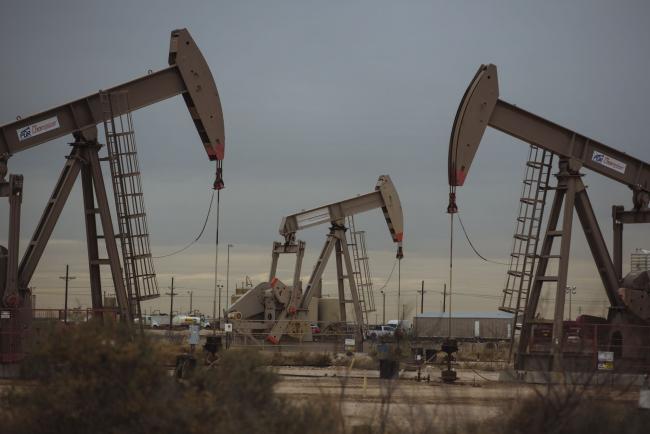(Bloomberg) -- Oil steadied after the biggest drop in almost seven weeks as investors attempted to gauge the economic impact of the fast-spreading coronavirus and the potential response from producers.
Futures held above $51 a barrel in New York after tumbling 3.7% on Monday amid a broad market sell-off driven by an increase in cases of the virus in South Korea, the Middle East and Europe. Prices ticked higher earlier Tuesday when Saudi Arabia’s Energy Minister Prince Abdulaziz bin Salman expressed confidence in the OPEC+ partnership, while saying the group hasn’t made a decision yet on whether to extend or modify its production-cut agreement.
Crude had rallied over the past couple of weeks on optimism the virus would be mainly contained within China and the global economy would avoid a major slowdown. Those assumptions are now in doubt following the rapid spread in recent days, which may also pile pressure on the Organization of Petroleum Exporting Countries and its allies to take action to stabilize oil markets.
“The longer the crisis drags on, the more severe the economic consequences would be, meaning further downward revisions in GDP and oil-demand forecasts,” said Tamas Varga, an analyst at PVM Oil Associates Ltd. in London.
West Texas Intermediate for April delivery rose 12 cents to $51.55 a barrel on the New York Mercantile Exchange as of 8:25 a.m. local time. It slumped $1.95 on Monday to $51.43, the lowest close since Feb. 13. Brent for April settlement also advanced 12 cents, trading at $56.42 on the ICE (NYSE:ICE) Futures Europe exchange, after falling 3.8% on Monday.
Vitol Group, the world’s biggest independent oil trader, estimates the virus is currently reducing China’s oil demand by about 4 million barrels a day, or around 4% of global consumption. While Vitol and others are positioning for a demand rebound, forecasts for when that will come may now need to be pushed back as the outbreak goes global.
See also: At London’s Oil Week, Clues About Demand Will Be All Around
Russia -- which had asked for more time before committing to additional production cuts recommended by OPEC+ officials -- may be forced to agree to the reductions if the rapid spread of the virus pushes oil prices down further, according to Vandana Hari, the founder of Vanda Insights in Singapore.
